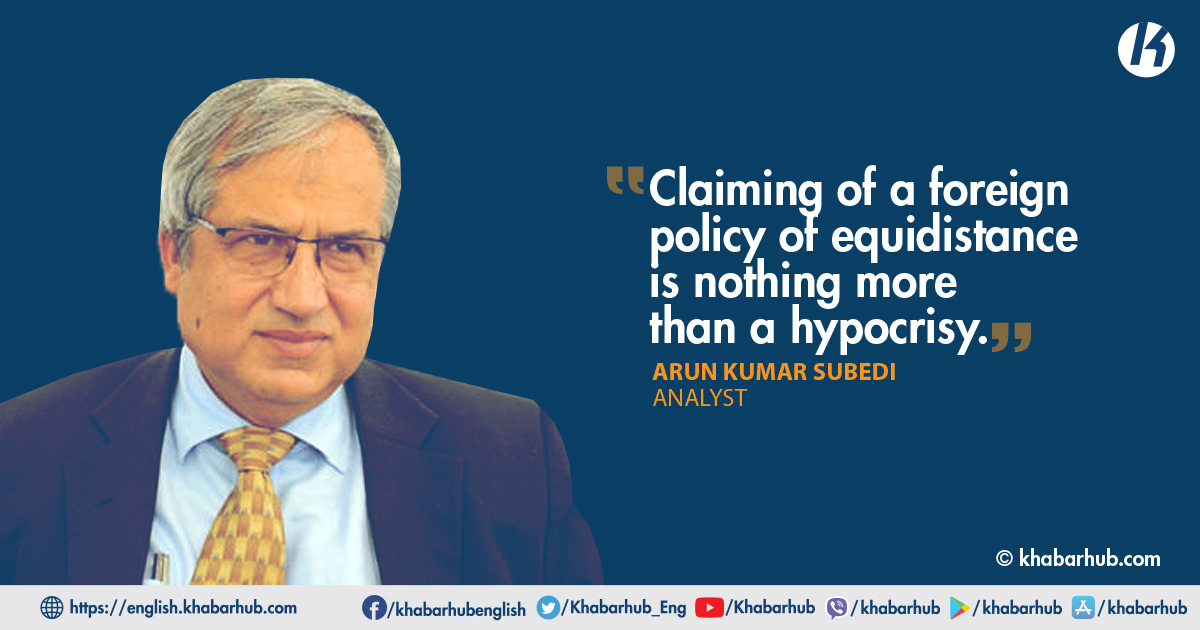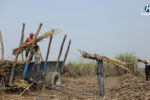South Asia is currently gripped by the wave of heat emanating from the Pulwama incident. India has resorted to several actions against Pakistan, from diplomatic as well as other punitive measures. For example, it has reduced the volume of water flowing to Pakistani territory from three rivers in the east of Sindhu. Similarly, at the initiation of India, the UN Security Council has proposed action against Masood Azhar, leader of Jaish-e-Mohammed, a terrorist outfit operating from Pakistan.
India has introduced punitive tariff barrier and stopped importing many commodities from Pakistan. Even merchants and farmers have stood against Pakistan. Farmers from Gujarat have stopped exporting vegetables to Pakistan. To the consequence, the price of tomato in Pakistan raised above Rs.200 per kg.
We have equidistance foreign policy. The question is not whether what kind of relationship we have with India or Pakistan. The point is that we should demand action against those involved in terrorist activities from a jurisdictional point of view.
In this context, Nepal expressed sorrow over the incident that claimed 40 lives of Indian Central Reserve Police Force (CRPF). Surprisingly, Nepal has failed to raise voice at the diplomatic level to take action against the group involved in the incident. For example, it should have issued an official release demanding stern action against the culprits. It is saddening to note that we, as a UN member, could not even voice the issue raised by the UN Security Council itself.
Since Azhar’s group already claimed the responsibility Nepal should not have hesitated in demanding stern action against him. Azhar is the same terrorist outfit member who had hijacked a plane from Nepal and taken it to Kandahar of Afghanistan in 1999. Why should Nepal hesitate to demand action against him? Or is Nepal against India? If so, is it now in a state of declaring a cold war with India?
We have equidistance foreign policy. The question is not whether what kind of relationship we have with India or Pakistan. The point is that we should demand action against those involved in terrorist activities from a jurisdictional point of view.
The question of an equidistance foreign policy is ridiculous. No other countries either India or Japan, or Vietnam or Pakistan or Iran or Saudi Arabia or Laos…have an equidistance foreign policy. Claiming of a foreign policy of equidistance is nothing more than hypocrisy.
Therefore, we should not have any confusion on our foreign policy in the name of equidistance. If we continue to remain under such confusion, this shall prove detrimental to the country.
If we neglect our diplomatic, economic and geographical reality in the name of an equidistance foreign policy, we are destined to the fate of Sri Lanka or the Maldives.
Equidistance foreign policy is not a matter of our concern. China has wanted since very long that Nepal’s foreign policy be China and India centric.
Being less oblivious of our two neighbors, India and China we seem to be drawn by the idea of Indo-Pacific Strategy.
It is in the country’s favor if Nepal focused its diplomatic relation and strategies towards India and China, keeping the western power at bay. We should never adopt or embrace a diplomatic policy that is not in conflict with either the strategy of China or that of India. China is well informed of Nepal’s geopolitical situation. The fact that Nepal has an economic and social attachment with India has never bothered China since history.
Therefore, we should not have any confusion on our foreign policy in the name of equidistance. If we continue to remain under such confusion, this shall prove detrimental to the country.
Some ominous signs are already apparent in Nepalese society thanks to the increased influence of western power. If the country fails to ignore it, a holocaust with no bloodshed shall begin in over a decade period. Some western elements are active to disintegrate this nation. This began by provoking the Marxists in Nepal who will claim an atheist status during the upcoming national census. After the Hindu population drops below 50 percent, the elements will achieve the goal of attacking our identity. Our foreign policy has been used by those elements (western power) to achieve this end.
The western power is involved in the strategy of obliterating our cultural and traditional roots in the name of an identity issue. If this continues unchecked, some ethnic communities in Nepal will have lost their identity in the next ten years.
Nepal needs to choose one way rather than remaining in the state of doldrums. Either we should invite the USA in the name of development, let it carry out development activities in the country by sacrificing our identity or we should engage our focus with the two immediate neighbors limiting our engagement with the USA to a formal relation. However, that seems to be challenging for the fact that Nepal is gripped by western mania. Every member of a middle-class family dreams of landing in a western country showing how obsessed Nepali society is with the west. The cultural invasion by the west in Nepal is yet to witness its climax.
There are comments from some quarters that western intervention in Nepal has raised the level of consciousness among the ethnic populace. Heightened consciousness level thanks to foreign intervention results in puritan groups just like the Jews. Well, in terms of wealth they dominate the world but in terms of culture, they are a minority. This may apply to India as well.
Some studies have also shown that China will become the largest country with Christian population thanks to growing western influence in the country. Xi Jinping is aware of this fact and may take strategic action to counter western influence.
India’s Prime Minister Narendra Modi, too, is well aware of western influence in India. He is a cultural nationalist trying to the hugely diverse country into the single thread of unity. We are yet to see a visionary leadership in Nepal strong enough to counter the western influence, preventing the forthcoming disaster.
The writer is a political and foreign affairs analyst.
(Views expressed in this article are the author’s own and do not necessarily reflect Khabarhub’s editorial stance).









Comment